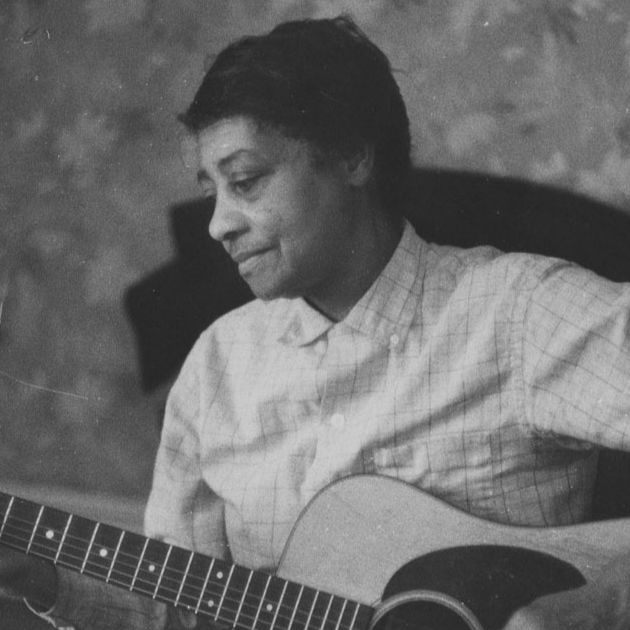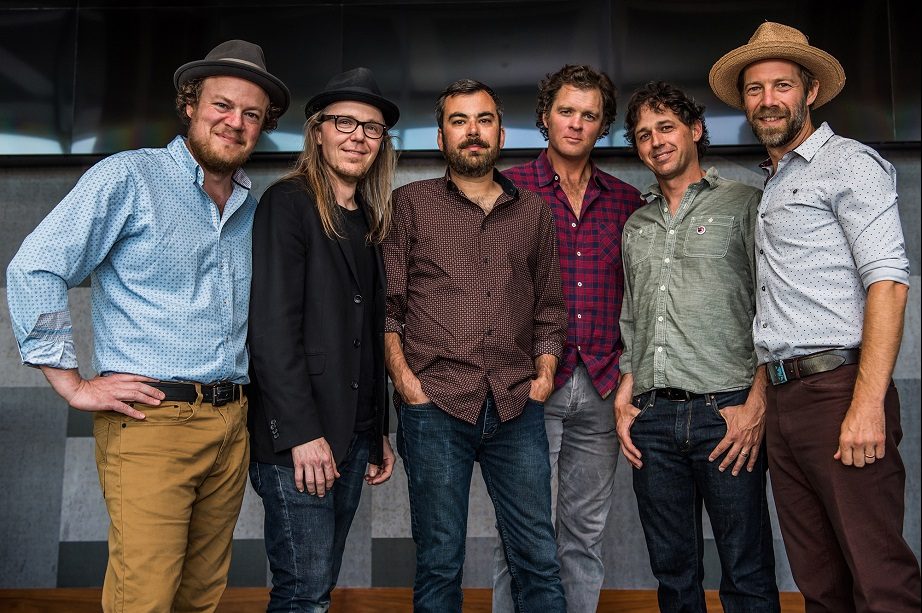(Editor’s Note: BGS contributor, picker, and singer-songwriter Rachel Baiman brings us into the production process for her new album, Common Nation of Sorrow — her first recording on which she’s credited as sole producer — for this op-ed feature.)
Take a look at the credits for your favorite records by artists of any gender, and you may notice that there are very few women listed. Maybe there’s a female singer, photographer, or graphic designer – possibly a violinist in a string section, but it probably stops there.
While great strides have been made in the last decade with more women on festival bills, in radio programming, and even as instrumentalists in live bands, when you look behind the scenes, you rarely see women involved in making records, unless they are the featured artist or part of the featured band. That’s because the studio is invisible to the audience.
Societal pressure is driving folks to do better when they are working in public lineups, but in recording studios, there’s nobody watching, and no face on the sounds that come out of the box. The audience sees a diverse band playing a live show, yet none of those musicians are featured on the record.
For example, I was thrilled to see Sarah Jones absolutely slaying the drums for Harry Styles live, but when I looked at the record credits, they had a male drummer listed. Why? It’s as if the industry is saying “We love to have you on stage, but when it comes to the real work, let the men get down to business.”
To Harry’s credit, there are a couple of female instrumentalists (violin and keys, and a conga player) and assistant engineers (“Move that microphone for me please!”) featured on his albums (which is huge progress, believe it or not), but I would have loved to see Jones included as a true backbone of the sound, especially when she’s such a fundamental part of the live show, and clearly more than capable. That kind of record credit is a career maker – not that Jones needs it, she’s doing great anyway – but why couldn’t she have that?
I’ve had a dream for a few years now of being a producer. Over the last decade of working in the studio in various roles, I’ve fallen in love with the production process: Starting with the songs, honing and editing until you’re left with only the meat, selecting the perfect musical voices to bring the song to life, and working with amazing engineers to get the sonic pallet perfect. I can’t get enough of it, and I want to do more.
According to a 2018 study by the University of Southern California, and reported on by GRAMMY.com, only 2% of music producers and 3% of engineers/mixers in popular music are women. These are roles that require real trust, as they are roles of power. There’s no turning down, editing, tuning, or washing out a producer or lead engineer. The project is in their hands.
Typically, male artists (as opposed to engineers, another role that leads to producing jobs) are asked to be producers when other musicians like the records that they’ve made or been a part of. It’s a role of mentorship and guidance, as well as artistic influence. I started to realize, though, that because I am a woman, nobody was going to naturally think of me for that role, even if they liked my music. People fit people into the molds that we’ve been shown, and people trust people who others trust. Everyone wants to make the right decisions, and it’s hard to be the first one to believe in somebody – I know this trap because I’m guilty of it myself! If I wanted to be thought of as a potential producer, I was going to have to build my own platform and show people that I could do it.
When it came time to make Common Nation of Sorrow, I saw it as an opportunity to take a bet on myself. Although it’s terrifying to produce one’s own music (you have to be both the speaker and the listener at the same time), I knew that if I could produce something great under my own name, perhaps others would start to see me in that role outside of my own music. After all, if you can’t trust yourself with your own work, how can you ask others to trust you with theirs?
With the support of my awesome label, Signature Sounds, I was able to record this project exactly the way I wanted to. I had a variety of musicians in mind for the rhythm section, both male and female. I hypothesized that when considering the sessions, I needed to make sure that there was a feeling of social balance in the room, for my own sake as well as for my fellow musicians’ sake. Something that was interesting to me about this theory is the stark difference between “including” women on a project because you feel that you should, and believing that empowering women and asking for their contributions will actually result in the best art.
When I get called for sessions to play fiddle or banjo, I am usually the only woman in the room. I walk in feeling like I have to be better than good in order to counteract the assumption that I will be sub-par, that I don’t know what I’m doing, that I won’t know how to read a chart, that I can’t solo, that I won’t know anything about sound or gear. Working from a position of insecurity, or “trying to prove something,” is a terrible way to make music. I might overplay, or underplay, or try to play the way I think men want me to play, not in my own voice. I might be trying to tamp down rage at a comment that somebody has just made about their wife being retired from music because, “She’s a mom now.”
Contrastingly, when you’re suddenly the producer, the only one you have to impress is yourself. Everyone in the room has been hired by you, and therefore, it’s in their best interest to support your vision. Nobody has incentive to diminish your work. Suddenly, I’m able to work from a place of confidence and artistic integrity. In a position of power, it’s not as likely that I’ll overplay, or change my sound based on others, or second guess my abilities. I’ve taken the bet, and now I have to come through for myself. That’s the difference between token inclusion and empowerment. You’re going to be able to hear it in the album made this way, too.
Recently, I was asked by a male musician who I love and admire to produce his next record. It was completely unexpected, and it took a minute for me to realize that my bet on myself was actually paying off. I’m starting to believe now that this could be a real career path for me. I think most people want to believe in, and support each other, but we, as women, have to have the courage to take those first steps and put ourselves out there for consideration. From my standpoint, it can work.
I’m thrilled to see so many incredible women working as producers and engineers these days in Nashville. Mary Bragg, Rachael Moore, Clare Reynolds, Shani Ghandi, and of course Alison Brown at Compass Records, who has been leading the charge for years. I look forward to one day having the opportunity to work in a studio environment inhabited by only women, completely by chance. The more we can show each other what’s possible, the more likely that will become.
(Editor’s Note: Rachel Baiman’s latest album, Common Nation of Sorrow, is available now wherever you stream or purchase music.)
Photo Credit: Natia Cinco



